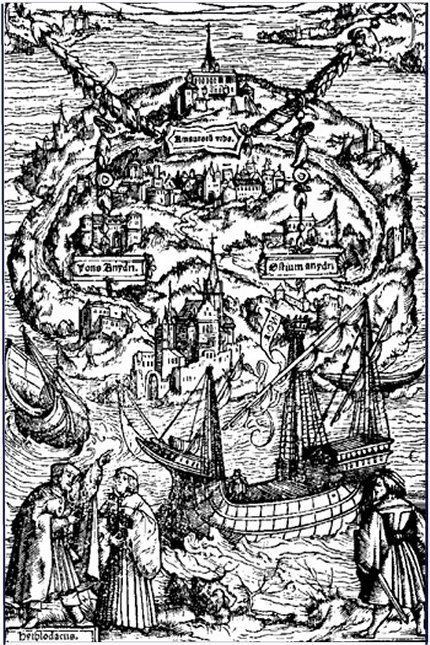A government of snollygosters
I’ve just finished reading Utopia by Sir Thomas More (1478-1535).
Utopia contrasts the contentious social life of European states with the perfectly orderly, reasonable social arrangements of Utopia and its environs (Tallstoria, Nolandia and Aircastle). In Utopia, with communal ownership of land, private property does not exist, men and women are educated alike and there is almost complete religious toleration.

One passage in the final chapter (entitled ‘Of the religions of the Utopians’) in particular struck a chord with me. It’s reproduced below.
Therefore I must say that, as I hope for mercy, I can have no other notion of all the other governments that I see or know, than that they are a conspiracy of the rich, who, on pretence of managing the public, only pursue their private ends, and devise all the ways and arts they can find out; first, that they may, without danger, preserve all that they have so ill-acquired, and then, that they may engage the poor to toil and labour for them at as low rates as possible, and oppress them as much as they please; and if they can but prevail to get these contrivances established by the show of public authority, which is considered as the representative of the whole people, then they are accounted laws; yet these wicked men, after they have, by a most insatiable covetousness, divided that among themselves with which all the rest might have been well supplied, are far from that happiness that is enjoyed among the Utopians…
Did Thomas More foresee the present UK government and its failed austerity policy? Hardly likely, but his words still have a ring of truth to them, which tells me that very little has changed in in general in governments since More’s time six centuries ago, apart from the introduction and gradual widening of the franchise to give the snollygosters an air of democratic respectability.
In case you’re wondering, a snollygoster is a person, especially a politician, who is guided by personal advantage rather than by consistent, respectable principles. As a word, it originated in the fast-expanding USA of the nineteenth century.
More’s Utopia is available for free in various formats from Project Gutenberg (posts passim).
